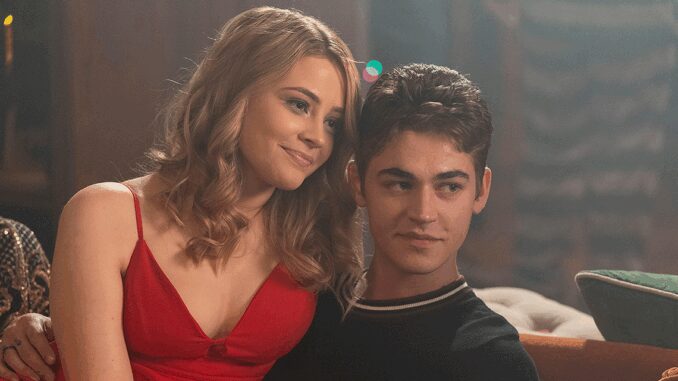
From Wattpad to Wrath: Revisiting the "After" Phenomenon Before the Final Fade
The words "After Series" conjure a very specific reaction, a cocktail of teenage nostalgia, eye-rolling disdain, and a lingering curiosity. It's a series that burned bright, a supernova born from the depths of Wattpad, exploding onto bookshelves and then, inevitably, the silver screen. For a certain generation, "After" was inescapable, a cultural touchstone in the messy, confusing landscape of first love. But time moves on, trends shift, and now, with the final installment gracing the hallowed halls of Netflix, it's time to revisit the "After" phenomenon, to understand its appeal, acknowledge its flaws, and ultimately, grapple with its legacy.
For the uninitiated, "After" follows the tumultuous relationship between Tessa Young, a sweet, ambitious college freshman, and Hardin Scott, a brooding, tattooed rebel with a mysterious past. Their connection is instant, undeniable, and utterly chaotic. Think classic bad boy meets good girl, but cranked up to eleven with a healthy dose of angst, melodrama, and questionable decision-making. The initial appeal, especially to the young adult audience, was clear. "After" offered a glimpse into a world of intense emotions, of raw passion and forbidden love. It tapped into the universal desire for belonging, for finding someone who sees beyond the surface, even if that someone is inherently flawed.
The series’ success on Wattpad was a testament to its accessibility. The unpolished prose, the immediate access to the author, and the collaborative nature of the platform created a uniquely intimate connection between the story and its audience. Readers felt invested in Tessa and Hardin's journey, offering feedback, shaping the narrative, and essentially co-creating the "After" universe. This sense of ownership fostered a fervent fanbase, eager to consume every chapter, every book, every movie.
However, the very elements that contributed to its initial success also became its Achilles' heel. As the series progressed, the repetitive nature of Tessa and Hardin's relationship became increasingly frustrating. Breakups and makeups, fueled by misunderstandings and toxic behavior, became the defining characteristic of their romance. Critics rightly pointed out the problematic portrayal of relationships, highlighting the manipulative tendencies, the emotional abuse, and the glorification of unhealthy dynamics.
The transition to the big screen further amplified these criticisms. The movies, while visually appealing and driven by a dedicated fanbase, struggled to capture the nuances of the source material. They often glossed over the complexities of the characters, exacerbating the problematic aspects of their relationship and leaving audiences questioning the message the films were sending. While the actors, Josephine Langford and Hero Fiennes Tiffin, garnered praise for their performances, they were ultimately hampered by the limitations of the script and the inherent challenges of translating a sprawling, online saga into a concise cinematic experience.
Now, with the final chapter streaming on Netflix, it's tempting to dismiss "After" as a fleeting trend, a relic of a bygone era in online fandom. But that would be a disservice to its impact. "After" undeniably shaped the landscape of young adult literature, paving the way for countless other Wattpad success stories. It demonstrated the power of online communities to propel authors to stardom and challenged traditional publishing models. It also sparked important conversations about the portrayal of relationships in media, forcing us to examine the messages we are sending to young people about love, respect, and boundaries.
Perhaps the lasting legacy of "After" isn't the story itself, but the discussions it ignited. It serves as a reminder that even stories with flaws can be valuable, providing a platform for reflection, debate, and ultimately, growth. As we bid farewell to Tessa and Hardin, it’s worth remembering that their tumultuous journey, despite its shortcomings, taught us something about the complexities of love, the importance of self-respect, and the enduring power of a good, albeit flawed, story. The "After" series may be ending, but the conversations it sparked will continue to resonate, long after the final fade to black.
